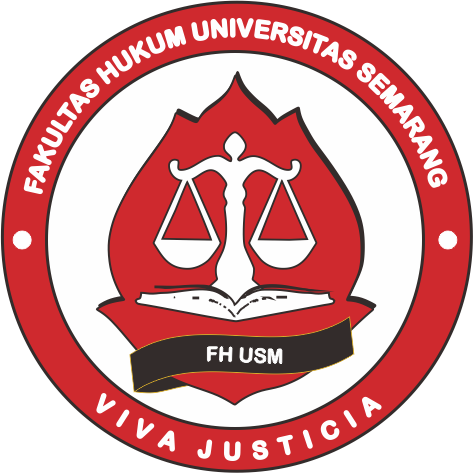THE PROBLEMATICS OF LAW ENFORCEMENT AGAINST THE EXECUTION OF ELECTORAL PENALTIES IN INDONESIA
DOI:
https://doi.org/10.26623/slr.v5i1.9358Keywords:
General Election, Criminal Prosecution, Law Enforcement, ProblematicsAbstract
Crimes occur in many ways, one of them in the context of elections in Indonesia. The potential crimes perpetrated by political party supporters in various areas of Indonesia whose law enforcement is not working to the maximum is one of the problems. The problem in this study is first, how do legal provisions relate to law enforcement against electoral crimes in Indonesia? Secondly, the problem of law enforcement against electoral crimes in Indonesia? Third, reconstruction of law enforcement against electoral crimes in Indonesia? The aim of this research is to determine the regulation and legal analysis of the forms of crime black campaigns in accordance with the law. This research uses normative law research with secondary data and processes data from primary, secondary, and tertiary legal materials. The results of the first study are that the legal provisions for electoral offences in Indonesia are regulated in the Law Number 7 of 2017, Criminal Law, and the Law on Electronic Information and Transactions. (ITE). Second, that the Law Enforcement Problems Against Electoral Crimes in Indonesia, i.e. the inadequate application of criminal law in elections, constitutes an obstacle to the increase in the incidence of electoral crimes that have violated the Election Law Number 7 of 2017 and the Penal Code as well as the Information and Electronic Transaction Law. (ITE). Thirdly, it is expected that Indonesia will have a specialized agency that will strictly prosecute electoral criminals. Therefore, it can be concluded that electoral crimes are not maximized due to weak enforcement of electoral law.
References
Abdurrahim;Haerani. “Alur Dan Proses Penegakan Hukum Terhadap Tindak Pidana Pelanggaran Pemilu Berdasarkan Undang- Undang Republik Indonesia Nomor 7 Tahun 2019 (Studi Di Bawaslu Kabupaten Lombok Barat.” Unizar Recht Journal 1, no. 4 (2022): 430–40. https://e-journal.unizar.ac.id/index.php/urj.
Afriana, Anita, Agus Mulya Karsona, and Sherly Ayuna Putri. “Passive Judge Shift In Civil Judges In Indonesia: Regulation And Relevance Of Legal Currency.” NVEO: Natural Volatiles & Essential OIls 8, no. 6 (2021): 1506–13.
Amilin. “Pengaruh Hoaks Politik Dalam Era Post-Truth Terhadap Ketahanan Nasional Dan Dampaknya Pada Kelangsungan Pembangunan Nasional Peserta Program Pendidikan Singkat Angkatan ( PPSA ) 22 Lemhannas RI Pekerjaan Rumah Presiden Terpilih Di Bidang Politik Yang Perl.” Jurnal Kajian LEMHANNAS RI 39, no. September (2019): 2016–20. https://www.lemhannas.go.id/images/Publikasi_Humas/Jurnal/Jurnal_Edisi_39_September_2019.pdf.
Amin, Khairul, M Nazaruddin, and M. Akmal. “Kontestasi Politik Pada Masyarakat Desa (Studi Kasus Pada Pemilu Legislatif 2019 Di Desa Rias Kecamatan Toboali Kabupaten Bangka Selatan).” JWP (Jurnal Wacana Politik) 5, no. 2 (2020): 149. https://doi.org/10.24198/jwp.v5i2.29784.
Aprilia, Maria, Shintia Dewi, Deddy R Ch Manafe, and Darius A Kian. “Deskripsi Tentang Tindak Pidana Pemilu Tahun 2019 Di Kabupaten Kupang Provinsi Nusa Tenggara Timur.” Jho Jurnal Hukum Online(Jho) 1, no. 4 (2023): 58–76.
Asmara, Anugerah Yuka, and Rudiarto Sumarwono. “Understanding the Complex Relationship Between Good Governance and Economic Growth in Indonesia During the Reform Era.” BISNIS & BIROKRASI: Jurnal Ilmu Administrasi Dan Organisasi 27, no. 2 (2021). https://doi.org/10.20476/jbb.v27i2.11219.
Carto, Carto, Adnan Murya, and Muh. Aripin Nurmantoro. “Analisis Penegakan Hukum Pemilu Dan Pemilihan (Study Penanganan Pelanggaran Di Bawaslu Kabupaten Indramayu).” Yustitia 8, no. 1 (2022): 97–106. https://doi.org/10.31943/yustitia.v8i1.153.
Dedihasriadi, La Ode, and Edy Nurcahyo. “Pancasila Sebagai Volkgeist: Pedoman Penegak Hukum Dalam Mewujudkan Integritas Diri Dan Keadilan.” Jurnal Magister Hukum Udayana (Udayana aster Law Journal) 9, no. 1 (2020): 142. https://doi.org/10.24843/jmhu.2020.v09.i01.p10.
Din, Mohd., Rizanizarli Rizanizarli, and Akbar Jalil. “Model Penegakan Hukum Tindak Pidana Pemilu Di Provinsi Aceh Yang Berkeadilan.” Jurnal Penelitian Hukum De Jure 20, no. 3 (2020): 289. https://doi.org/10.30641/dejure.2020.v20.289-300.
Hafid, Irwan. “Kebijakan Kriminal Dalam Mengatasi Kampanye Hitam (Black Campaign) Di Media Sosial.” Jurnal Bawaslu Provinsi Kepulauan Riau 2, no. 1 (2020): 74–94. https://doi.org/10.55108/jbk.v2i1.233.
Hamzah, Andi. Hukum Pidana Indonesia. Jakarta: Sinar Grafika, 2019.
Hutomo, Priyo, and Markus Marselinus Soge. “Perspektif Teori Sistem Hukum Dalam Pembaharuan Pengaturan Sistem Pemasyarakatan Militer.” Legacy: Jurnal Hukum Dan Perundang-Undangan 1, no. 1 (2021): 46–68. https://doi.org/10.21274/legacy.2021.1.1.46-68.
Junaidi, Muhammad. “Tindak Pidana Pemilu Dan Pilkada Oleh Sentra Penegakan Hukum Terpadu.” Jurnal Ius Constituendum 5, no. 2 (2020): 220. https://doi.org/10.26623/jic.v5i2.2631.
Katzer, Matthias. “Rawls ’ s List of Human Rights and Self-Determination of Peoples,” 2022, 1–18.
Koho, Intan Rachmina. “Oligarki Dalam Demokrasi Indonesia.” Lensa 15, no. 1 (2021): 60–73. https://doi.org/10.58872/lensa.v15i1.6.
Muhaimin. Metode Penelitian Hukum. Mataram: Mataram University Press, 2020.
Nelson, Febby Mutiara, and Esther Melinia Sondang. “Striking a Balance Between Legal Certainty, Justice and Utility To End the Clash Between Bankruptcy and Criminal Proceedings in Court Decision No. 11/Pdt.Sus-Gugatan Lain-Lain/2018/Pn.Jkt.Ps and No. 3 K/Pdt.Sus-Pailit/2019.” Journal of Indonesian Legal Studies 6, no. 1 (2021): 185–98. https://doi.org/10.15294/jils.v6i1.45979.
Notoprayitno, Maya Indrasti, and Faridah Jalil. “Legal Culture Perspective in Implementation of Inclusive Education in Indonesia.” Advances in Social Science, Education and Humanities Research 388, no. Icse (2019): 122–27.
Pahlevi, Farida. “Pemberantasan Korupsi Di Indonesia Perspektif Legal System Lawrence M. Freidmen.” El-Dusturie 1, no. 1 (2022). https://doi.org/10.21154/eldusturie.v1i1.4097.
Rampen, Yesaya Andries, Decky J. Paseki, and Harly Stanly Muaja. “Ratifikasi Perjanjian Internasional Melalui Peraturan Perundang-Undangan Nasional Di Bidang Hak Asasi Manusia.” Lex Privatum 10, no. 4 (2022): 1–15. https://ejournal.unsrat.ac.id/index.php/lexprivatum/article/view/42394.
S, Mizan Malik. “Rekonstruksi Penegakan Hukum Tindak Pidana Pemilu.” Huma Betang Demokrasi 1, no. 1 (2021): 113–33. https://journal.bawaslu.go.id/index.php/HBD/article/view/149/237.
Soekanto, Soerjono & Sri Mamudji. Penelitian Hukum Normatif: Suatu Tinjauan Singkat. Depok: Rajawali Press, 2019. https://lib.ui.ac.id/detail?id=20439459&lokasi=lokal.
Solikhudin, Muhammad, and Moh. Zainullah. “The Formulation of Good Governance Fiqh for Indonesia as a Welfare State.” Al-Qisthu: Jurnal Kajian Ilmu-Ilmu Hukum 20, no. 2 (2022): 166–81. https://doi.org/10.32694/qst.v20i2.1718.
Sugiyono, Heru, Heru Suyanto, and Rosalia Dika Agustanti. “The Law of Arbitration Rules That Are Final and Binding.” Indonesia Law Review 10, no. 3 (2020): 360–73. https://doi.org/10.15742/ilrev.v10n3.655.
Syafrizal, Fery Chofa. “Problematika Tindak Pidana Pemilu Tahun 2019 Oleh Sentra Penegakan Hukum Terpadu Di Kabupaten Lima Puluh Kota.” Universitas Muhammadiyah Sumatera Barat 1 (2023): 89–102.
Downloads
Additional Files
Published
Issue
Section
License
Copyright Notice
An author who publishes in Semarang Law Review agrees to the following terms:
- Author retains the copyright and grants the journal the right of first publication of the work simultaneously licensed under the Creative Commons Attribution-ShareAlike 4.0 License that allows others to share the work with an acknowledgement of the work's authorship and initial publication in this journal
- Author is able to enter into separate, additional contractual arrangements for the non-exclusive distribution of the journal's published version of the work (e.g., post it to an institutional repository or publish it in a book) with the acknowledgement of its initial publication in this journal.
- Author is permitted and encouraged to post his/her work online (e.g., in institutional repositories or on their website) prior to and during the submission process, as it can lead to productive exchanges, as well as earlier and greater citation of the published work (See The Effect of Open Access).
Read more about the Creative Commons Attribution-ShareAlike 4.0 Licence here: https://creativecommons.org/licenses/by-sa/4.0/.











